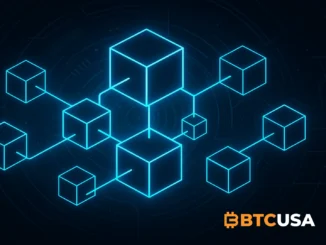
Jump Crypto Subsidiary Tai Mo Shan Reaches $123 Million Settlement with the SEC
On Dec. 20, Tai Mo Shan, a subsidiary of Jump Crypto, reached a $123 million settlement with the U.S. Securities and Exchange Commission (SEC). The securities regulator alleged that the firm had deceived investors regarding the stability of TerraUSD (UST) before its implosion.
In 2021, Tai Mo Shan negotiated a discounted purchase deal with Terraform Labs for the Terra LUNA tokens. It also bought $20 million in UST to contribute to maintaining the algorithmic stablecoin’s 1:1 peg against the US dollar. The SEC thus claimed that Tai Mo Shan’s actions gave a semblance of stability to the stablecoin that misled investors.
SEC Chair Gary Gensler pointed to the incident’s consequence:
“The implosion reverberated throughout crypto markets, wiping out the savings of countless investors. Crypto actors must comply with the securities laws and not lie to the public”.
TerraUSD Collapse: A Chain Reaction
TerraUSD was an algorithmic stablecoin that relied on software and digital asset collateral to maintain its peg against the US dollar. At one point, TerraUSD became the third-biggest stablecoin by market capitalization. Its collapse in May 2022 sent ripples throughout the crypto world.
- Key Events Leading to the Collapse
- Whale Action: On May 8, 2022, an investor sold $285 million in UST, plunging its price to $0.98.
- Market Panic: By May 10, UST crashed further to $0.67, which caused fear among investors and massive liquidations.
- Reserve Imbalance: The market capitalization of UST reached higher than that of its collateral LUNA, showing that it was not adequately backed, hence leading to a full collapse.
By the time TerraUSD lost its peg, investor confidence had evaporated. This failure underlined the systemic risks associated with algorithmic stablecoins, sparking global calls for stronger regulation.
Regulatory Fallout and Reforms
The collapse prompted investigations into Terraform Labs and its founder, Do Kwon, culminating in $4.4 billion in settlements and criminal charges. It also led to regulatory changes like the Lummis-Gillibrand Stablecoin Act of 2024, which prohibits algorithmic stablecoins.
A settlement between Tai Mo Shan and the SEC underlines an increasingly strong scrutiny of stablecoins and a need for more transparency within the crypto space. With regulators tightening oversight, this incident sends a warning to the entire market for participants to conform to securities laws and give protection to investors.


